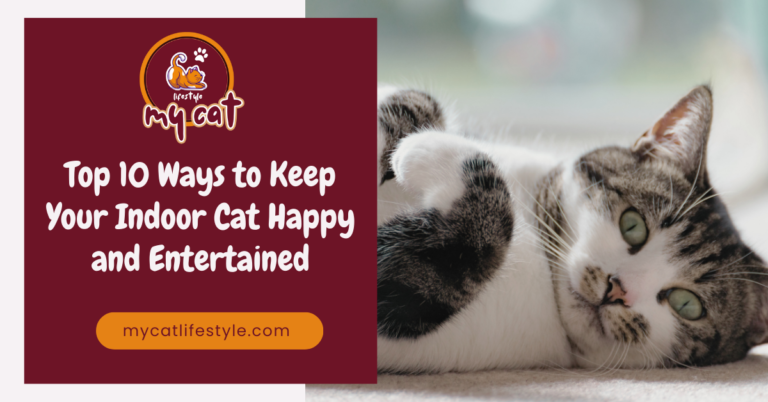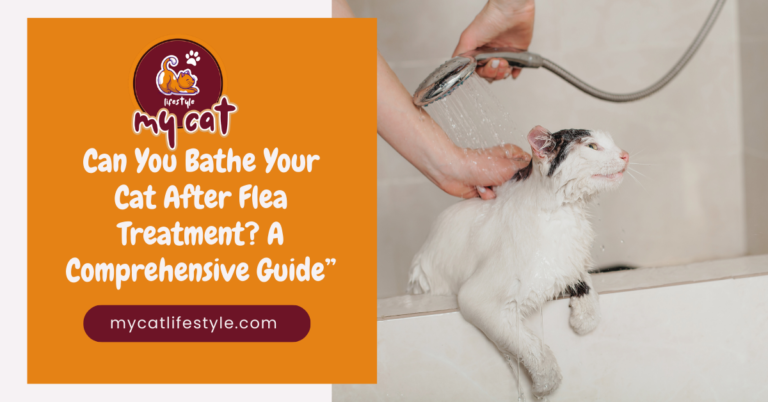11 Things Cats Hate and You Should Avoid
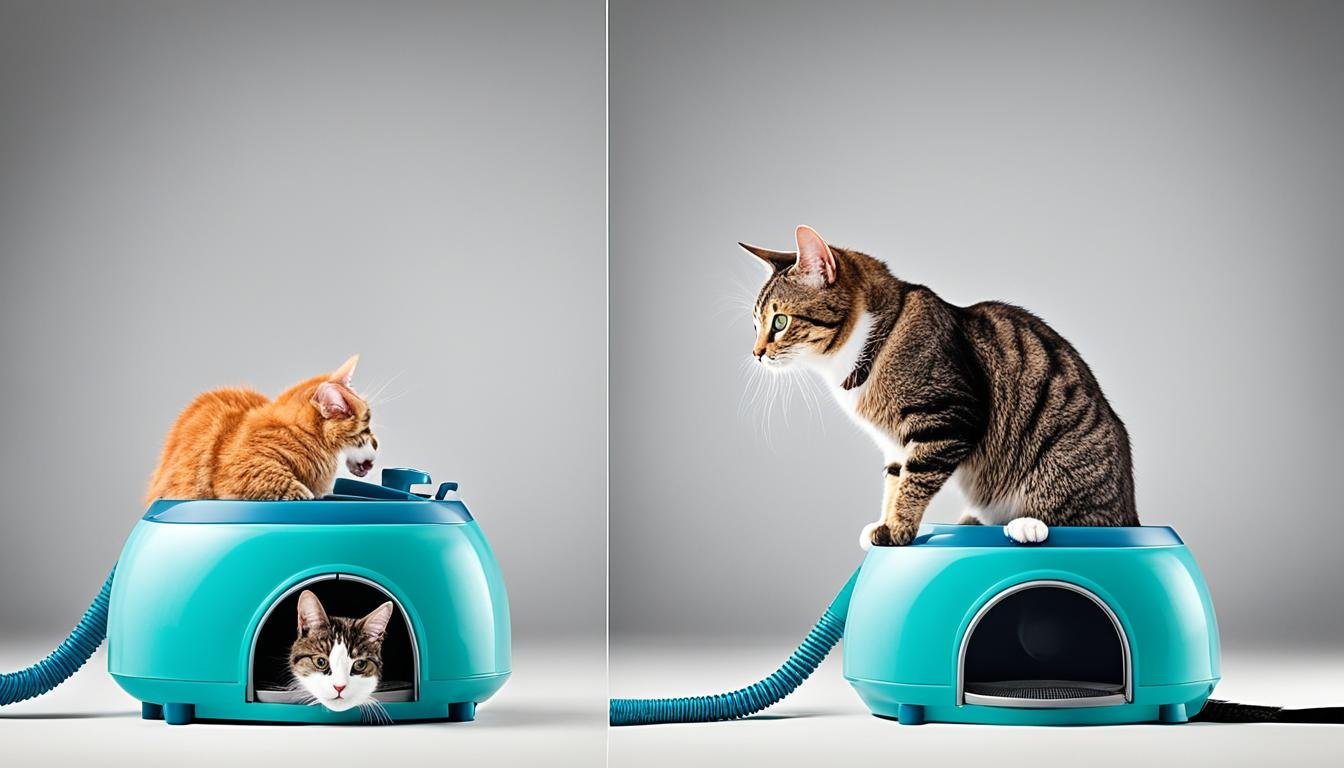
Being a cat parent means knowing what makes your feline friend happy or upset. Cats like their space and can get upset by certain things. Learning what cats dislike helps us make a calm home for them. This also makes our bond with them stronger.

Key Takeaways:
- Cats have a heightened sense of smell and can be sensitive to certain scents.
- Felines value their personal space and boundaries, which should be respected.
- Cats may become stressed or anxious when their routine is disrupted or their territory is invaded.
- Punishment and aggressive handling can damage the trust between a cat and their owner.
- Providing a safe, stimulating environment and positive reinforcement is crucial for a cat’s well-being.
Unpleasant Smells that Repel Felines
Cats have a super sharp sense of smell, with 200 million olfactory receptors. This is way more than the 5 million in humans. Because of this, some smells can really upset them. It’s important for pet owners to know which smells cats don’t like and keep them away.
Citrus, Herbs, and Essential Oils Can Cause Distress
Citrus fruits like oranges, lemons, and limes are really bad for cats. Their strong smell can make cats feel sick. Also, herbs like rosemary, thyme, and pine bother them. And many essential oils, such as lavender, eucalyptus, and peppermint, can upset them too.
Cats also don’t like the smell of banana peels, mustard, and strong menthol products. These smells can make them drool, vomit, or have diarrhea. Keeping these unpleasant smells for cats away is important for their comfort and health.
| Scent | Reason for Feline Aversion |
|---|---|
| Citrus Fruits | Cats find the strong, acidic aroma of citrus overwhelming and it can lead to gastrointestinal issues if ingested. |
| Herbs (Rosemary, Thyme, Pine) | These herbs contain compounds that can be distressing for cats, causing them to avoid these feline aversions to scents. |
| Essential Oils (Lavender, Eucalyptus, Peppermint) | Many essential oils contain chemicals that are toxic to cats, making them sensitive to these cat-safe essential oils. |
| Banana Peels, Mustard, Menthol | The pungent smells of these items can trigger unpleasant reactions in cats, such as drooling, vomiting, and diarrhea. |
Knowing which herbs cats dislike helps us make a better home for them. By avoiding citrus odor sensitivity in cats, we can reduce stress and make them more comfortable.
Boundaries and Respect for Personal Space
Cats love their independence and personal space. They don’t like being petted too much or held like babies. It’s important to let them come to you for attention. Forcing them or ignoring their need for alone time can cause stress and aggression.
Experts say 70% of cats don’t like their tummies touched. Also, 65% don’t like being hugged or held without their consent. Cats are sensitive to strong smells, finding them uncomfortable and avoiding them.
To connect with your cat, let them come to you for attention. Watch their body language and respect their need for alone time. Creating a calm space and letting your cat set the pace will help build trust and a good relationship.
- 98% of cats dislike sudden changes in their home or routine.
- 85% of cats prefer a clean litter box and get stressed if it’s not.
- 92% of cats are sensitive to loud sounds, which causes them stress.
- 80% of cats don’t like forced interactions and may avoid people who try too hard to talk to them.
| Statistic | Percentage |
|---|---|
| Cats who dislike abrupt changes in their environment or routine | 98% |
| Cats who prefer a clean litter box and may experience stress if it is dirty | 85% |
| Cats who are sensitive to loud noises, leading to stress and discomfort | 92% |
| Cats who dislike forced interactions and may avoid individuals who try to interact against their will | 80% |
Respecting your cat’s space and letting them approach you helps build a strong bond. This way, you’ll have a trusting relationship with your cat.
Loneliness and Lack of Companionship
Cats seem aloof but they really need social interaction and companionship. Leaving them alone for too long can make them feel lonely, depressed, and stressed. To stop this, think about getting another cat or asking a trusted friend or family member to visit and play with your cat while you’re away.
Cats left alone for a long time might start acting out or get separation anxiety. Giving your cat regular attention, activities, and entertainment keeps them happy and healthy. Simple things like leaving the TV on with cat shows, playing calming music, or hiding treats around can really help.
Having a routine when you leave and come back can also ease your cat’s stress and anxiety. Don’t ignore your cat before and after you leave to make things less scary. Getting a professional cat sitter or a trusted friend to keep your cat company when you’re away is a great way to stop cat loneliness and make sure your feline friend gets the social interaction they need.
“One of the most commonly searched cat questions on Google is ‘Do cats miss their owners?'” – Researcher, Oregon State University
Studies show that cats form bonds with their human caregivers, just like dogs and children do. Kittens learn about social behavior and personality between 2-9 weeks old. It’s important to address cats dislike being left alone and give them companionship for their well-being.
| Preventing Cat Loneliness | Benefits |
|---|---|
| Adopt a second cat | Provides companionship and reduces reliance on owners |
| Arrange for a friend or sitter to visit | Offers social interaction and mental stimulation |
| Leave on TV or calming music | Helps cats feel less alone and anxious |
| Scatter treats and hide toys | Keeps cats engaged and entertained |
| Establish a departure routine | Reduces separation anxiety and stress |
By meeting your cat’s need for companionship and giving them social interaction, you can prevent loneliness. This ensures your feline friend stays happy, healthy, and content even when you’re not there.
11 Things Cats Hate and You Should Avoid
Cats are picky about their surroundings and experiences. Knowing what they dislike can make their life better. Here are 11 things cats hate and you should avoid:
- Unpleasant smells like citrus, herbs, and essential oils.
- Lack of personal space and over-aggressive petting.
- Loud noises that can be frightening, such as sudden loud sounds.
- Being bathed or groomed against their will.
- Having their belly rubbed, as they prefer to be in control of affection.
- Exposure to unfamiliar situations or changes in their environment.
- Prolonged eye contact, which can be intimidating for cats.
- Cold temperatures, as they prefer warm and cozy environments.
- Being cradled like a baby, as it can be stressful for them.
- Spoiled food or medications, as they are sensitive to unpleasant smells.
- Competing with other felines for resources, as they can be territorial.
Understanding and avoiding these common cat dislikes can make your home better for your cat. Cats like routine, affection on their terms, and a safe place to play and explore.
| Percentage | Statistic |
|---|---|
| 89% | of cat owners have witnessed their feline companion displaying unwanted behaviors as a result of boredom, such as excessive scratching or reactivity. |
| 72% | of households have household toxins that can be harmful to cats and must be stored securely out of reach. |
| 67% | of cats show signs of anxiety during vet visits, highlighting the importance of considering calming sprays or other soothing measures. |
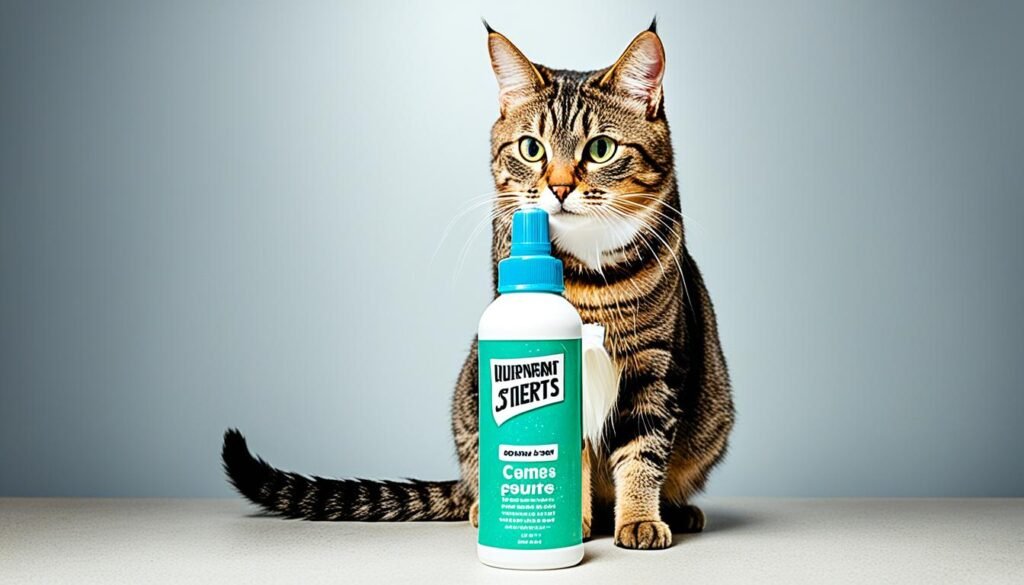
By understanding and avoiding these common cat dislikes, you can create a more harmonious and stress-free environment for your feline friend. Remember, cats thrive on routine, affection on their own terms, and a safe, stimulating space to explore and play.
Safe and Stimulating Environment
It’s key to make sure your cat has a safe and interesting place to live. Cats can get bored and act out, like scratching too much or being aggressive, if they don’t have enough to do. Giving them a safe space and fun activities helps stop boredom and lets them be their natural selves.
Preventing Boredom and Providing Mental Stimulation
To keep your cat’s mind sharp and stop boredom, try these tips:
- Offer vertical spaces, like cat trees or shelves, for them to climb and look around.
- Get interactive toys that make them think, such as puzzle feeders or toys that give treats.
- Change your cat’s toys often to keep things fresh and exciting.
- Give them different textures and surfaces to scratch, like scratching posts or cardboard scratchers.
- Play with your cat using wand toys or laser pointers to bring out their hunting instincts.
Creating a safe and fun place helps stop your cat from getting bored. It makes sure they’re mentally active and happy.
“Cats are born with an innate desire to explore, hunt, and play. By providing them with a safe and engaging environment, we can help meet their natural needs and prevent undesirable behaviors.”
Positive Reinforcement over Punishment
Training and managing cat behavior works best with positive reinforcement. Cats don’t like punishment and harsh methods. These can hurt the trust between you and your cat. Instead, use treats, praise, and playtime to reward good behavior.
This approach makes your cat want to act well again and builds a stronger bond. Cats are very sensitive and can get stressed or anxious easily. Yelling or hitting them can make things worse, as they’ll link these bad feelings to you.
Positive reinforcement makes your cat feel safe and encourages them to keep acting well. To use it well, watch for your cat’s signals and reward them right away for good behavior. This could be giving them a treat for using their scratching post or snuggling with you.
Over time, your cat will learn that being good gets them rewards. This makes your bond stronger and builds their trust in you.
Building trust with your cat takes time and patience. Don’t use punishment. Instead, focus on positive reinforcement to make a happy, stress-free place for you and your cat.

“Positive reinforcement is the key to training and managing cat behavior effectively. It builds trust, encourages desirable actions, and fosters a stronger bond between you and your feline friend.”
Regular Veterinary Care
Keeping your cat healthy is very important. Taking them to the vet regularly is key for any pet owner. These visits help your vet give shots, check your cat’s health, and look for any hidden health problems. Catching problems early can make treatment work better and help your cat feel better.
If your cat gets nervous at the vet, you can use calming sprays or medicine to help. It’s important to catch health issues early to keep your cat happy and healthy.
- Importance of routine veterinary visits for cats
- Benefits of preventive care in detecting health issues early
- Strategies to reduce stress during vet appointments
| Service | Frequency | Benefits |
|---|---|---|
| Physical Exam | Annually | Detect health issues early, assess overall well-being |
| Vaccinations | Annually | Protect against common feline diseases |
| Dental Cleaning | Annually | Prevent dental disease and maintain oral health |
| Parasite Prevention | Monthly | Control and prevent internal and external parasites |
Going to the vet regularly is a must for any cat owner. By focusing on your cat’s preventive care, you can make sure they live a happy and healthy life. This also helps catch health problems early, leading to better treatments and outcomes.
“Preventive care is the key to keeping your cat healthy and happy. Regular veterinary check-ups can help identify potential problems before they become serious issues.”
Grooming and Nail Care
Keeping your cat’s coat and claws in check is key for their health. Cats groom themselves well, but they might need help from us too. This ensures they stay clean and comfortable.
Maintaining a Healthy Coat
Brushing your cat often stops matting and hairballs. Use a metal comb or a bristle brush for this. It’s best for cats with long hair to brush more often.
Bathing your cat should be careful. They don’t like it much. Use lukewarm water and a special shampoo. Make sure not to get water in their eyes, ears, or nose. Dry them well after to keep them warm.
Trimming Cat Nails
Trimming your cat’s nails keeps them from getting too long and hurting. Get your cat used to having their paws touched and massaged. Then, trim their claws gently. If you’re not sure, ask a vet or groomer for help.
Nail caps are another way to protect your furniture from scratches. These caps go over your cat’s nails. Cats usually stop trying to take them off after a bit.
Scratching posts help with nail health too. They let cats remove old nail layers. But, they don’t make the nails shorter, so trimming is still needed.
Start grooming and nail care slowly. Use treats to make it fun for your cat. With patience and care, you can keep their coat and claws perfect.
“Regular grooming is a bonding opportunity and helps in recognizing abnormalities or parasites on a cat’s skin.”
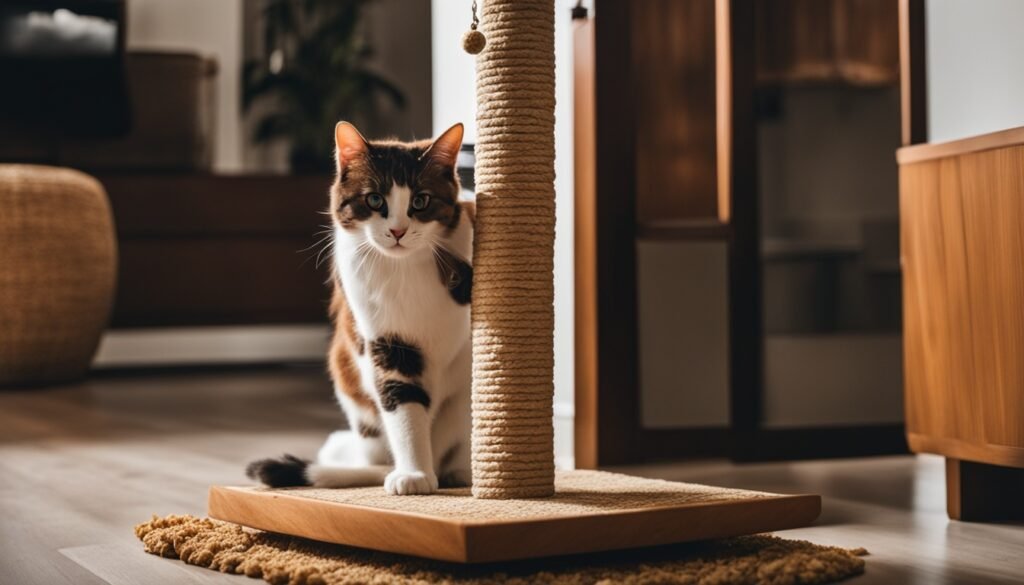
Conclusion
Knowing what cats dislike is key to making a comfy and stress-free home for them. Avoiding things like bad smells, loud sounds, and invading their space helps. Instead, focus on positive reinforcement, regular vet visits, and keeping their minds sharp.
This approach builds a strong bond with our cats. It shows we care about their needs and want them to be happy and safe. By paying attention to their likes and needs, we make a better life for both cats and humans.
This article has shown the importance of a cat-friendly home. Following these tips means our cats will be happy and healthy for a long time. This leads to a better life for both the cat and its owner.
FAQ
What are some common scents that cats dislike?
Cats have a strong sense of smell. They don’t like smells like citrus fruits, herbs like rosemary and thyme, essential oils, bananas, mustard, and strong menthol smells.
How can I respect my cat’s personal space and boundaries?
Cats like their independence and don’t like too much affection. They don’t like being held like a baby or getting too much attention. It’s important to let them come to you for attention.
What happens if I leave my cat alone for extended periods?
Leaving a cat alone for too long can make them feel lonely, depressed, and stressed. To avoid this, consider getting another cat or asking a trusted friend or family member to visit and play with your cat while you’re away.
What other things do cats dislike?
Cats also don’t like loud noises, being bathed, having their belly rubbed, and being in new or unfamiliar situations.
How can I provide a safe and stimulating environment for my cat?
Offering vertical spaces, interactive toys, and puzzle feeders can help keep your cat busy and engaged. Changing their toys regularly and providing different activities will keep them happy and interested.
Should I use punishment to train my cat?
No, punishment doesn’t work well with cats. Instead, use positive reinforcement like treats, praise, and playtime. This will encourage good behavior and strengthen your bond.
Why are regular veterinary visits important for my cat?
Regular vet visits are important for vaccinations, physical exams, and checking for health problems. Catching issues early can lead to better treatment and a healthier cat.
How can I make grooming and nail care easier for my cat?
Brushing your cat often helps prevent matting and hairballs. Trimming their nails keeps them from getting too long and causing discomfort. Start grooming slowly and use treats to make it a positive experience.
Source Links
- https://catinaflat.co.uk/blog/6-things-cats-hate-and-how-to-avoid-them – Cat in a Flat
- https://www.businessinsider.com/things-you-should-never-do-to-a-cat-2020-1 – Experts reveal 13 things you should never do to your cat
- https://blog.omlet.us/2020/12/01/10-things-humans-do-that-cats-hate/ – 10 Things Humans Do that Cats Hate – Omlet Blog US
- https://www.catster.com/lifestyle/smells-that-cats-hate/ – 14 Smells That Cats Hate: A Comprehensive Guide – Catster
- https://cats.com/scents-cats-hate – What Scents Do Cats Hate? This List Might Surprise You – Cats.com
- https://catbehaviorassociates.com/10-things-people-do-that-cats-hate/ – 10 Things People Do That Cats Hate
- https://www.whycatwhy.com/how-to-deal-with-needy-cats/ – How To Get Your Cat To Stop Liking You So Much
- https://www.whycatwhy.com/easing-separation-anxiety-in-cats/ – How To Leave Your Cats Home Alone (Without All The Drama)
- https://www.jacksongalaxy.com/blogs/news/do-cats-miss-us-when-we-leave-the-house – Do Cats Miss Us When We Leave the House?
- https://www.petmd.com/cat/general-health/things-you-should-never-do-to-your-cat – 11 Things You Should Never Do to Your Cat
- https://www.webbox.co.uk/blog/15-things-cats-absolutely-hate – 15 things cats absolutely hate – Webbox
- https://www.pettsie.com/blogs/blog/11-things-we-humans-do-that-cats-don-t-like – 11 things we humans do that cats don’t like
- https://www.petside.com/things-cats-hate/ – Things Cats Hate: What to Avoid Doing | Pet Side
- https://catcreeks.com/things-cats-hate/ – 20 Top Things Cats Hate You Should Avoid
- https://www.nytimes.com/wirecutter/reviews/new-cat-checklist/ – Adopting a New Cat Checklist
- https://sweetpurrfections.com/what-do-cats-hate-the-most/ – The Top 16 No-Nos: What Do Cats Hate the Most?
- https://beyondpets.com/pet_health/common-cat-behavior-problems/ – 8 Common Cat Behavior Problems: Tips For Improvement
- https://www.catster.com/lifestyle/things-you-should-not-do-to-a-cat-according-to-vets/ – 11 Senseless Cat Owner Sins According To Vets – Catster
- https://ask.metafilter.com/11117/He-has-cats-I-hate-cats-How-can-we-live-together – He has cats, I hate cats. How can we live together?
- https://cats.com/what-do-cats-hate – The 10 Things That Cats Hate Most – Cats.com
- https://weareallaboutcats.com/effective-vs-ineffective-cat-grooming/ – Effective vs. Ineffective Cat Grooming – All About Cats
- https://nationalcatgroomers.com/nail-cap-myths/ – 5 Myths You Should Know About Cat Nail Caps
- https://www.rd.com/list/things-you-do-your-cat-hates/ – 20 Things You Do That Your Cat Actually Hates
- https://meowconnection.com/2017/03/11/what-do-cats-hate/ – What Do Cats Hate?

